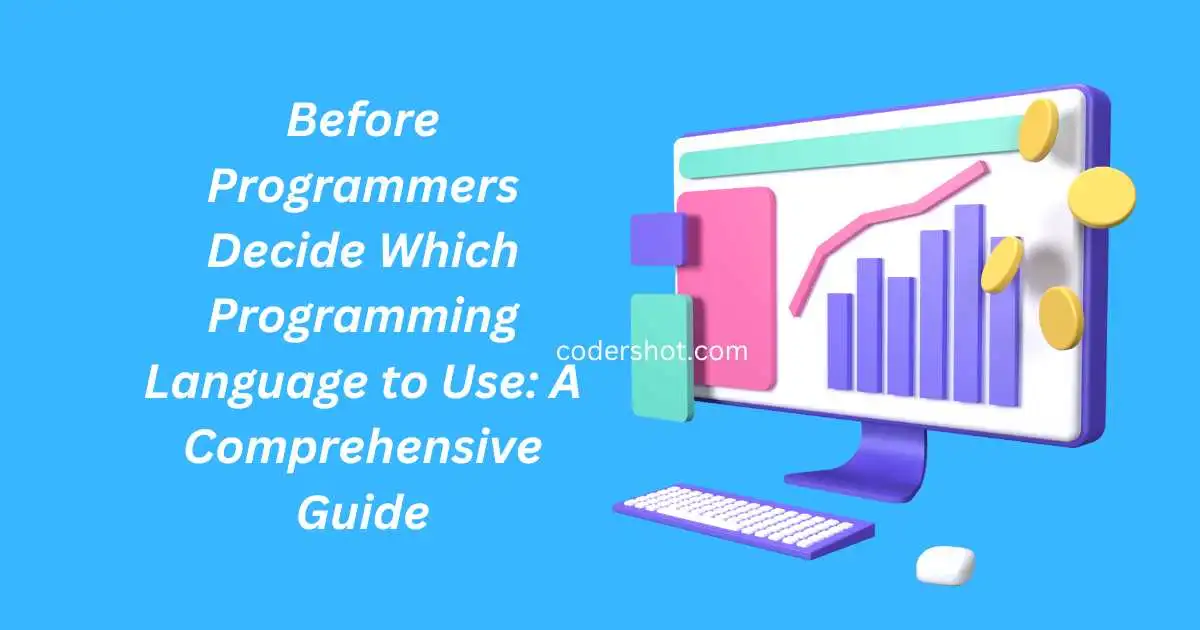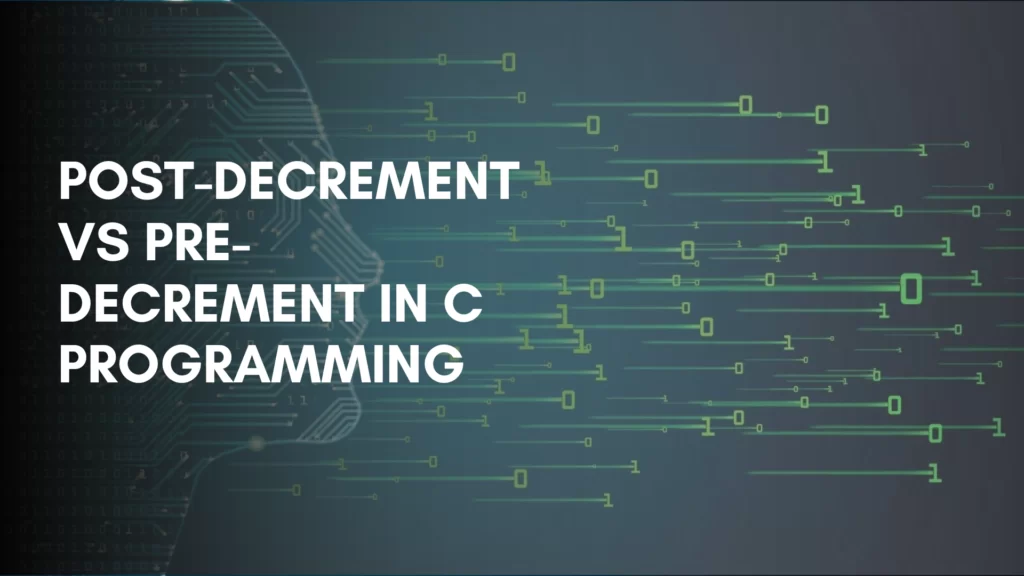In today’s digital world, programming languages play a pivotal role in software development. With a myriad of options available, programmers often face the challenging task of selecting the most suitable programming language for their projects.
This complete guide aims to assist programmers in making informed decisions by providing valuable insights into various programming languages. Whether you’re a seasoned developer or a newcomer to the coding world, this article will equip you with the necessary knowledge to navigate the vast landscape of programming languages.
Table of Contents
ToggleUnderstanding the Importance of Choosing the Right Programming Language
The choice of programming language can significantly impact the success and efficiency of a software project. Each programming language has its strengths, weaknesses, and areas of specialization. Considerations such as project requirements, scalability, performance, community support, and learning curve are vital factors that programmers must evaluate before making a decision.
Read also:- The Most Popular Programming Languages: A Comprehensive Analysis Of Trends And Rankings (2023)
Exploring Popular Programming Languages
1. Python

Python has gained immense popularity in recent years due to its simplicity, readability, and versatility. It is renowned for its extensive standard library, which provides a wide range of functionalities for various domains such as web development, data analysis, artificial intelligence, and more. Python’s clean syntax and large community make it an excellent choice for beginners and experienced programmers alike.
2. JavaScript

JavaScript is the backbone of modern web development. It enables dynamic and interactive web pages, making it an essential language for front-end development. With frameworks like React, Angular, and Vue.js, JavaScript has expanded its reach to mobile and desktop application development. Its ubiquity and vast ecosystem make it a must-learn language for web developers.
3. Java

Java is a robust and widely adopted programming language known for its platform independence and extensive libraries. It is generally used for building enterprise-level applications, Android apps, and large-scale systems. Java’s emphasis on strong typing and object-oriented programming principles make it a reliable choice for projects that prioritize scalability and maintainability.
4. C++

C++ is a powerful language often favored for systems programming, game development, and resource-constrained applications. It offers low-level control, high performance, and direct hardware access. C++ is the foundation of many popular software frameworks and is an excellent choice for developers seeking efficiency and control over system resources.
5. C#

C# (pronounced C-sharp) is a programming language developed by Microsoft, primarily targeting Windows applications, game development, and cross-platform development with .NET. It offers modern language features, strong integration with the Microsoft ecosystem, and a vast set of frameworks and libraries. C# is widely used in enterprise software development and has gained traction in the game development community.
Evaluating Factors for Language Selection
When choosing a programming language, it’s crucial to consider various factors to align with project requirements and team capabilities. Let’s explore some key aspects to evaluate during the decision-making process.
1. Project Requirements
Understanding the project’s objectives, scope, and technical requirements is paramount. Consider whether the language supports the necessary frameworks, libraries, and APIs to achieve the desired functionalities. Additionally, factor in the expected growth and long-term sustainability of the project.
2. Community and Support
The strength and activity of a programming language’s community can greatly impact a developer’s experience. Active communities ensure prompt assistance, frequent updates, and access to a wealth of resources, including documentation, forums, and open-source libraries. Opting for a language with an active community can save valuable time and provide valuable insights.
3. Learning Curve and Developer Familiarity
The learning curve associated with a programming language is an essential consideration, especially for teams with diverse skill sets. Assess the level of expertise and familiarity within your development team to ensure efficient collaboration and productivity. Choosing a language that aligns with the existing skill set can expedite the development process and reduce potential roadblocks.
4. Performance and Scalability
For projects with stringent performance requirements or those expected to handle a large volume of data or user interactions, performance and scalability become critical factors. Some programming languages are optimized for specific use cases, offering better performance than others. Consider the scalability potential of the language and its ability to handle increasing workloads.
5. Integration and Compatibility
When developing software, it’s important to consider the integration capabilities of a programming language. Evaluate whether the language can seamlessly connect with existing systems, databases, and third-party APIs. Compatibility with different operating systems, platforms, and devices is also a crucial factor, particularly for cross-platform or mobile app development.
Resources for Language Comparison and Selection
To assist programmers in their decision-making process, several resources provide valuable insights and comparisons between programming languages. Here are a few widely recognized sources:
1. Official Documentation and Websites
The official documentation and websites of programming languages serve as primary sources of information. They provide in-depth explanations, tutorials, code samples, and best practices. Visiting these resources allows programmers to gain a comprehensive understanding of each language’s syntax, features, and capabilities.
2. Developer Communities and Forums
Engaging with developer communities and forums can provide real-world insights and experiences from fellow programmers. Platforms like Stack Overflow, Reddit, and GitHub communities offer discussions, Q&A sessions, and code repositories specific to different programming languages. Active participation in these communities fosters knowledge sharing and enables programmers to learn from industry experts.
3. Online Courses and Tutorials
Numerous online platforms offer courses and tutorials for learning programming languages. Platforms like Coursera, Udemy, and Codecademy provide structured learning paths and hands-on exercises. These resources cater to various skill levels, allowing programmers to acquire new languages or deepen their knowledge in specific areas.
4. Tech Blogs and Publications
Tech blogs and publications often publish articles, comparisons, and case studies that shed light on the pros and cons of different programming languages. Following reputable blogs and industry-specific publications can provide valuable insights into the latest trends, best practices, and emerging technologies within the programming community.
Final thoughts
Choosing the right programming language is crucial in software development. Among the hundreds available, only a select few are essential. Keep in mind that there’s no universal solution, and each language has its unique strengths and use cases. Continual learning and staying updated with industry trends help programmers adapt and make informed language selections.
We believe the mentioned solutions are excellent for programmer training. Learning one of these languages is a great starting point if you want a career as a programmer, transition to another industry, or advance within your current position. The available courses range from Java for experts to Python for beginners.
Read also:- Which Programming Language Is Best For Getting A Job In 2023








